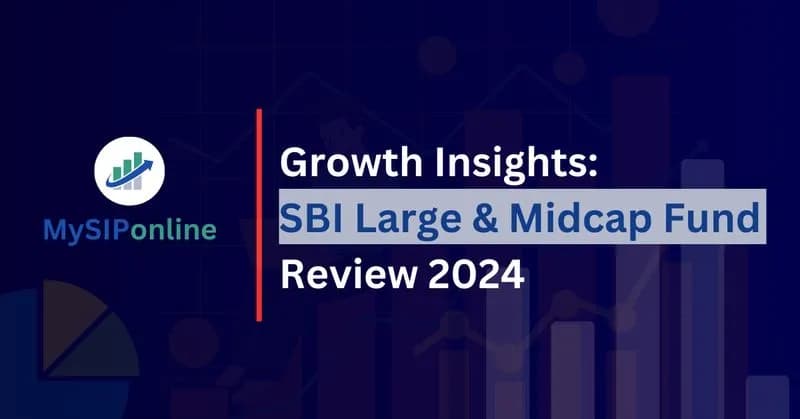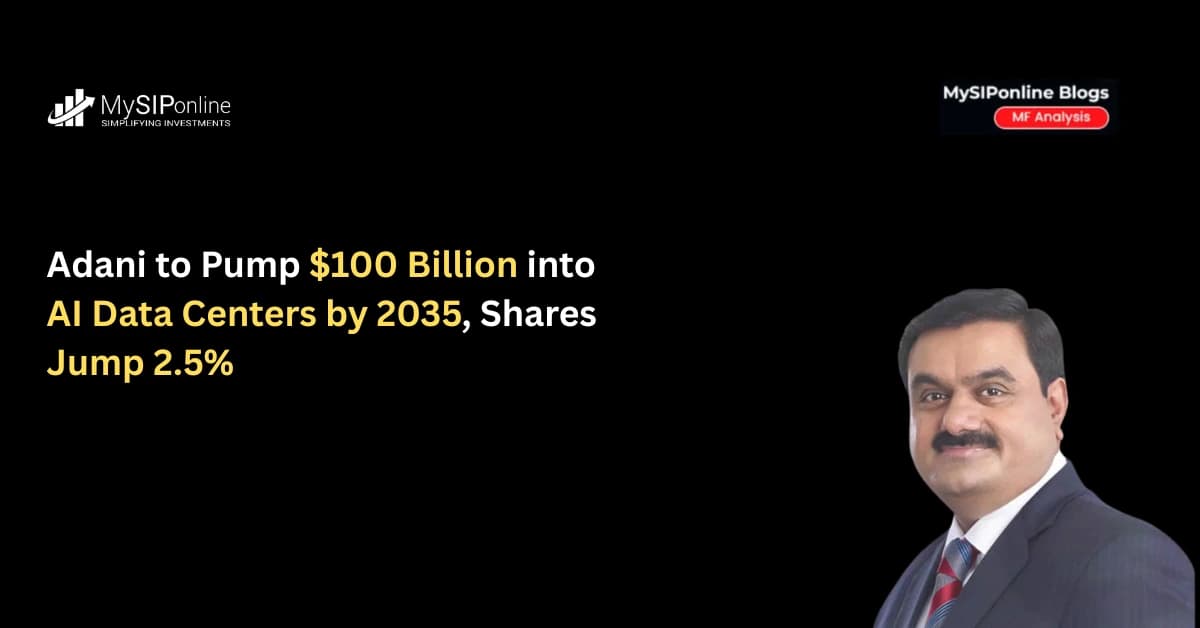Table of Contents
- ICICI Prudential Multi-Asset Fund - Growth
- SBI Blue Chip Fund-Regular Plan Growth
- HDFC Top 100 Fund - Growth Option - Regular Plan
- HDFC Balanced Advantage Fund - Growth Plan
- Parag Parikh Flexi Cap Fund Regular-Growth
Mutual Fund investment is as easy as scrolling Instagram you will only see the content that will interest you. In mutual funds, there are N numbers of schemes which will you choose? of course, the best one that will give you higher returns. So the collection of the top 10 mutual fund schemes is here You have a chance to invest in top funds and gain your desired corpus.
In this blog post, we will explore the best mutual funds available, how to select them, how tax applies to mutual fund schemes, and finally, we will list the top ten funds that offer healthy returns.
Let’s know a little about mutual funds- A mutual fund is a kind of investment option that is created by an Asset Management Company (AMC) that collects money in a specific fund from numerous investors and utilizes that money to buy a diverse portfolio of stocks, bonds or other securities. It is managed by an experienced fund manager whose goal is to earn good returns on investments so that they can make wealth for their clients.
After gaining a basic understanding of what mutual funds are, it's essential to delve into some key aspects to deepen your knowledge
How to select top-performing Mutual Funds?
Research
It is critical to undertake extensive research on mutual funds. Look for funds that have shown consistency in producing returns throughout a variety of market circumstances.
Performance
Evaluate the fund's performance against its benchmark index and peer group over time periods such as one, three, and five years. Consistent outperformance is a good sign.
Expense Ratio
The expense ratio measures the fund's annual operating expenses as a percentage of its total assets. Lower expense ratios represent lower costs for investors, which can help to boost overall returns.
Fund Managers
Evaluate the fund manager's experience, track record, investment philosophy, and management style. A professional and experienced fund manager can make a substantial difference in the fund's success.
Risk Profile
Determine the fund's risk level by looking at its volatility and past performance during market downturns. Check that the fund's risk is consistent with your own risk tolerance and investing objectives.
Investment style
Understand the fund's investment style, which could be growth, value, or hybrid. Select a style that is consistent with your investment tastes and objectives.
Asset Allocation
Examine the fund's Asset Allocation strategy to ensure it is consistent with your portfolio objectives. Diversification across asset types can help minimize risk while increasing returns.
Fund Size
Consider the fund's size, as very big funds may struggle to maintain performance due to limited investment possibilities and liquidity limitations.
Consistency
Look for funds that have consistently outperformed their peers and benchmarks over time. Consistency reflects the fund's ability to successfully manage changing market conditions.
Reputation
Consider the reputation and integrity of the mutual fund house that manages the fund. A renowned fund firm with a proven track record of managing funds helps to build trust in the fund's management and investment procedure.
Top 10 Mutual Funds Schemes
To satisfy the wide range of investor needs, many mutual fund providers in India offer a wide range of investment options.
Here are some top schemes-
- ICICI Prudential Large & Mid-Cap
- HDFC Top 100 Fund
- Quant Small Cap Fund
- HDFC Mid Cap Fund
- Parag Parikh Flexi Cap Fund
- Nippon India Multi Cap Fund
- 360-Focused Equity Fund
- BANDHAN ELSS Tax Saver Fund
- HDFC Balanced Advantage Fund
- ICICI Prudential Multi Asset Allocation Fund
If this question comes to your mind, that means you are too close to call yourself a smart investor
How to get Profitable Returns?
It is essential to use a systematic and planned strategy in order to generate profitable returns on investments. Keep such key points in mind-
- Start by setting clear financial goals and timelines for your investments.
- Diversify your investment portfolio across different asset classes such as stocks, bonds, and mutual funds.
- Research and select investment options with a track record of delivering consistent returns.
- Regularly review and adjust your investment portfolio based on changing market conditions and your financial goals.
- Consider investing for the long term to benefit from the power of compounding.
- Avoid making impulsive investment decisions based on short-term market fluctuations.
- Stay informed about economic trends, industry developments, and geopolitical events that may impact your investments.
- Seek guidance from financial advisors or professionals if needed to make informed investment decisions.
- Monitor and rebalance your investment portfolio periodically to maintain an optimal asset allocation.
- Be patient and disciplined in your investment approach, understanding that profitable returns may take time to materialize.
Taxation of Top Mutual Funds in India
In India, how much tax you pay on your mutual fund investments depends on a few things like the type of mutual fund you have, how long you've had it, and your tax situation. Here's a simple breakdown:
Equity Mutual Funds
- If you sell your Equity Mutual Fund within one year, you'll pay a 15% tax on the profit you made.
- If you hold onto your equity mutual fund for more than a year and your profit is more than Rs. 1 lakh, you'll pay a 10% tax on that profit.
Debt Mutual Funds
- If you sell your debt mutual fund within three years, any profit you make will be added to your regular income and taxed according to your income tax rate.
- If you hold onto your Debt Mutual Fund for more than three years, you'll pay a 20% tax on the profit after adjusting for inflation.
Tax-saving Mutual Funds (ELSS)
- If you invest in ELSS mutual funds, you can get a tax deduction of up to Rs. 1.5 lakh under Section 80C of the Income Tax Act.
- When you sell your ELSS mutual fund after three years, you'll pay a 10% tax on any profit above Rs. 1 lakh.
Dividend Distribution Tax (DDT)
Any dividends you receive from mutual funds are tax-free for you. But before the mutual fund company gives you the dividend, they have to pay a tax called Dividend Distribution Tax.
Systematic Withdrawal Plan (SWP) and Systematic Transfer Plan (STP)
If you make money through SWP or STP, the tax you pay depends on the type of mutual fund you have and how long you've had it.
What are the types of Mutual Funds?
Mutual funds come in different types, each with its own characteristics and benefits. Some common types include
Equity Funds
These invest primarily in stocks, offering the potential for high returns but also higher risk.
Debt Funds
These invest in fixed-income securities like bonds and government securities, aiming for a steady income with lower risk.
Balanced Funds
These invest in a mix of stocks and bonds Hybrid Mutual Funds, offering a balance of growth and income potential.
Index Funds
These aim to replicate the performance of a specific market index, providing broad market exposure at low costs.
Money Market Funds
These invest in short-term, low-risk securities like Treasury bills, providing stability and liquidity.
Sector Funds
These focus on specific sectors like technology or healthcare, offering targeted exposure to particular industries.
Tax-saving Funds (ELSS)
These offer tax benefits under Section 80C of the Income Tax Act while investing primarily in equities.
Exchange-traded funds (ETFs)
These trade on stock exchanges like a stock but represent a basket of securities, offering diversification and liquidity.
Conclusion
Investing in mutual funds is a straightforward approach to building wealth. By selecting top-performing funds, understanding how to generate profitable returns, navigating the taxation of mutual funds, and grasping the various types of mutual funds, you can make informed investment decisions. Before investing, it's wise to consult with a financial expert to tailor your investment strategy to your specific financial goals and risk tolerance.
If you're wondering about the best way to invest, consider opting for a Systematic Investment Plan (SIP) in mutual funds. SIPs offer a disciplined approach to investing, allowing you to invest regularly over time. This strategy can help you achieve long-term financial growth and reach your investment objectives.











